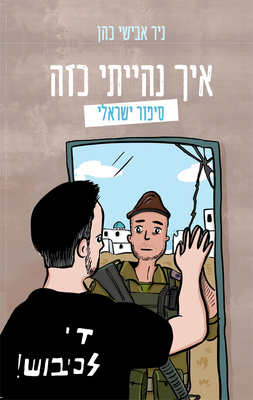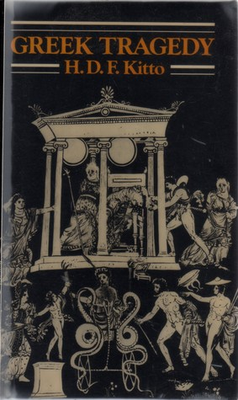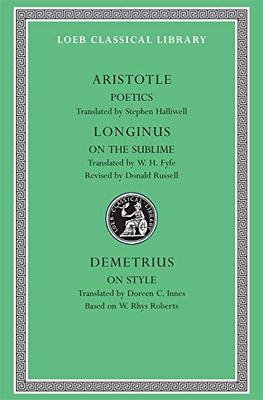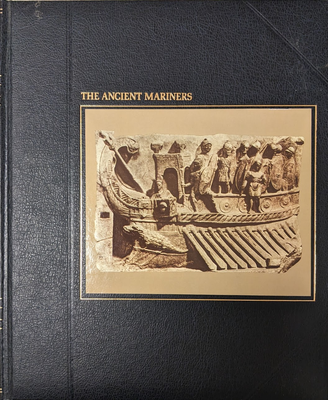How to Invent Everything: A Survival Guide for the Stranded Time Traveler by Ryan North. When I read Twain’s A Connecticut Yankee in King Arthur’s Court so many years ago, I was struck by the practical approach of the titular Yankee in this early time-travel tale. How much of modern technology could I have recreated in a similar situation? What good would my knowledge of software engineering be, in an era with no modern computers? An era with no computers at all? With no electricity? An era before metalworking? Before written language...? That, at least, I could help with; inventing an alphabet sounds like no big deal. But everything else?
Do not fret! Ryan North, author of Dinosaur Comics, managed to get his hands on the repair manual of a time-travel machine from the future. The machine, alas, is non-repairable, and so instead the manual provides a concise guide to (re-)creating civilization and technology. It is “a complete cheat-sheet for civilization”, with everything from a system for finding sources of salt (follow vegetarian animals) to a reliable method for producing a 440Hz sound, so you could calibrate musical instruments. Overall, both entertaining and interesting.
L’Élégance du hérisson (The Elegance of the Hedgehog), by Muriel Barbery. Hebrew translation by Sharon Preminger. Any book that opens with Marx (literally, that’s the first word in the book) is inevitably a book about class warfare. And of course, the centrality of Tolstoy’s Levin in the plot (and in particular the scene often referenced, with Levin harvesting in the field with the muzhiks) is tightly related to this struggle.
In Israeli literature, every novel that presents a romance crossing the lines of the local ethnic warfare inevitably involves the partner from the dominant side being an outsider, and inevitably ends in death: we see this both in Michael’s A Trumped in the Wadi and in Rabinyan’s All the Rivers. I wonder if a similar rule applies to French novels about a romance crossing the lines of the class warfare: in this particular example, the upper-class lover is a Japanese emigrant, and there is no happy ending.
This is a fine novel, but at times, the author’s insistence on force-feeding the readers with references and meanings spoils the enjoyment. A novel (and its characters) does not have to talk about lofty concepts in order to be about these concepts. And while mentioning the source of the name “Levin” is one thing, spelling out the source of literature’s most famous opening line is overdoing it. It just seems like the author does not trust her readership to find anything out for themselves.
The Cat Who Saved Books by Sosuke Natsukawa. Translated by Louise Heal Kawai. This Young Adult feline fantasy is a lightweight variant of The Neverending Story, where a young, reclusive book-lover is led literally into the world of books, through an old person’s bookstore. As with Ende’s book, here too the protagonist has to fight challenges, to find courage in himself, and finally realize the importance of books and believing in them; the parallels are too many to ignore, up to and including the ringing of the store’s doorbell. (The “second labyrinth”, or the second adventure in the book, also has the aura of the Camazotz scene from A Wrinkle in Time, but I am not sure this was intentional.) The book is loaded with literary references, most of them upfront and direct, but two are hinted: the tabby cat, I suspect, was taken from the pages of Natsume Sōseki’s I am a Cat, while the last labyrinth is an unnamed accusation of religious works, dangerous enemies that have forgotten the importance of empathy.
The copy I have was signed by the author; I was gifted this book by a dear colleague, and it was a delightful read.
How Did I Become This Way: An Israeli Story by Nir Avishai Cohen. Cohen (no family relation) was the spokesperson for the anti-occupation group Breaking the Silence, as well as a local micro-celebrity. In this book (the lousy title translation is his, not mine) he explores how did he turn up being the way he is. Spoiler: he didn’t “turn up” like this, he grew up like this, a person with strong moral values who found out the dissonance between what he was told about Zionism and, well, reality. In the book, Cohen focuses too much about his life as a celebrity, and too little on his inside view of Israeli politics. That’s a pity; the book could have been far more interesting had he chosen the opposite focus.
Each generation has its own retelling of the Greek myths. As a child, I read Edith Hamilton; in recent years, I’ve read Robert Graves. Both are solid mid-20th-century. Now I’ve read The Library by (pseudo-)Apollodorus, and Troy, the third volume in Stephen Fry’s retelling. One is from roughly two thousand years ago, the other from roughly two weeks ago.
The translation I’ve read of Apollodorus’s text was by Sir James George Frazer. As you would expect from Frazer, his translation is peppered with footnotes comparing the legends to various other sources, including non-Greek mythologies. All in all, the book contains much more text in footnotes than in source (translated) text; many individual footnotes are two or three pages long (using a smaller font). The book itself is a faithful summary of other books on Greek mythology, and helps us understand what Greeks in general believed in; but it is rather monotonous and dull (“the dull compilation of a commonplace man”, says Frazer), so that the translator’s footnotes sometimes end up being more interesting than the core text. There is nothing so revealing of the dullness of Apollodorus’s storytelling than his retelling of the Iliad; when you reduce all the Iliad’s Book XXIV to “And after the games Priam came to Achilles and ransomed the body of Hector, and buried it”, poetry, emotion, and soul all jump out the window.
Frazer, in his introduction, discusses the possibility of some (though not all) of the Greek heroes and deities being real historic figures, who were deified over the years after their deaths. He gives various examples of this happening in Greece, including the heroes of Marathon having “received the first step of promotion on the heavenly ladder by being accorded heroic honours, which they enjoyed down to the second century of our era”, while amusingly he completely ignores the example of Christ. Similarly, in a footnote to the statement “Hera gave birth to Hephaestus without intercourse with the other sex”, his footnote mentions “The belief in the possible impregnation of women without sexual intercourse appears to have been common, if not universal, among men at a certain stage of social evolution, and it is still held by many savages”, again with no mention of Christ.
Fry’s text, as in the previous two volumes (Mythos and Heroes), is flowing, enjoyable, and rather comprehensive. It is a very appropriate retelling for our own century. It ends right after the Trojan war, so I fully expect Fry to publish a fourth volume, covering the Odyssey and the rest of the returns, as well as the Oresteia.
Greek Tragedy: A Literary Study, third edition, by H.D.F. Kitto. Kitto’s approach is basically: the ancient playwrights knew exactly what they were doing, and our criticism and analysis should be based on that; “When a critic can improve a play of Sophocles’, he may be sure that he is only giving it a turn that Sophocles had already rejected.” In this vein, throughout the early chapters, Kitto refuses to accept theories that view Aeschylus as not-yet-a-master of the new poetic form; all criticism stems from the assumption that the poet knew exactly what he was doing and what tools he had at his disposal. Which is a remarkable approach. “What we should allow for is not so much Aeschylus’ archaism but our own modernity ...; we so easily assume that the methods and aims of our own epoch are immutable parts of drama itself.” “All we have to do is understand what he [Aeschylus] thought his plays were about; then everything becomes clear — including the fact ... that in his own time he was not a highbrow dramatist but an immensely popular one.”
However, at times, his approach seems forced. For example, there is a lengthy explanation on why the prologues of Euripides could only be as they are, and information about the past could not have been delivered as successfully through dialogue or the chorus; “the ’playbill’ prologues becomes inevitable.” But it seems obvious that had Euripides chosen (say) choral pieces in place of the playbill prologues, Kitto would have equally justified this choice as inevitable, and the best possible one. In fact, it seems to me to be mostly a stylistic choice by Euripides, and not necessarily one that has to be defended with such vigor.
Kitto is extremely ironic in his criticism of other critics, which adds real spice to this already-excellent text.
Two ancient books on writing style: On the Sublime by Longinus and On Style by Demetrius. Both are, of course, almost entirely irrelevant in terms of actual style advice; which makes either of them better than Strunk and White, because an irrelevant advice is better than a bad one.
Comedy: From Aristophanes to Seinfeld, volume A, edited by Dan Urian and Leah Gilula. Alas, few things can be more dry than explaining a joke. And alongside with this book, I’ve read translations of Pseudolus by Plautus (translated by Dwora Gilula), Twelfth Night or What You Will and As You Like It by Shakespeare (translated by Raphael Eliaz and Lea Goldberg, respectively), and Tratuffe and The Miser by Molière (translated by Eli Bijaoui and Nathan Alterman, respectively). The Alterman and Goldberg translations are both (obviously) in dated language, but Goldberg’s text is still a pure delight, despite being overly Biblical at times.
The Ancient Mariners by Colin Thubron and the editors of Time-Life Books (The Seafarers series). Naval aspects of the Greek and Roman empires.
New Reviews Notification |
To receive notifications as new reviews are published,
consider following the RSS feed. |
|








